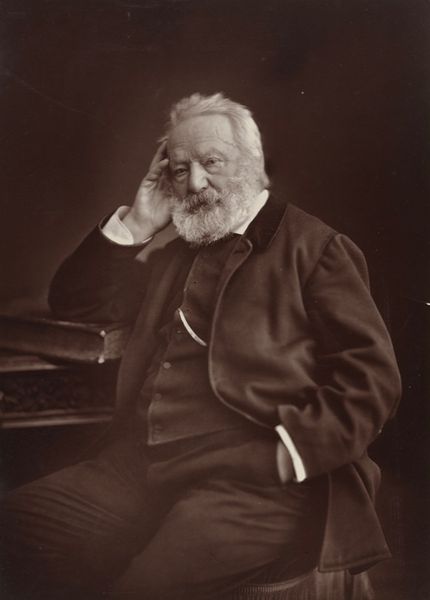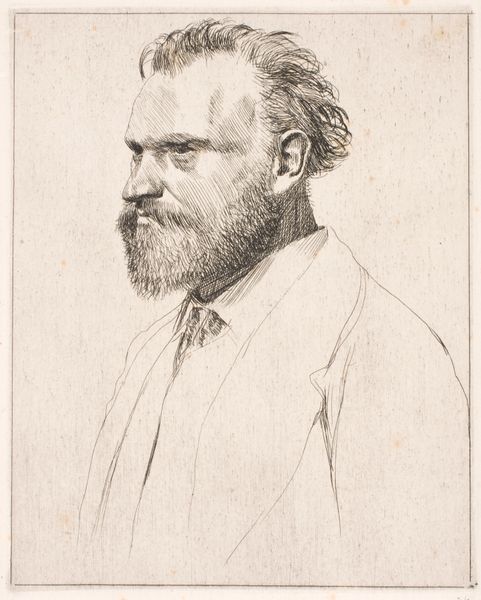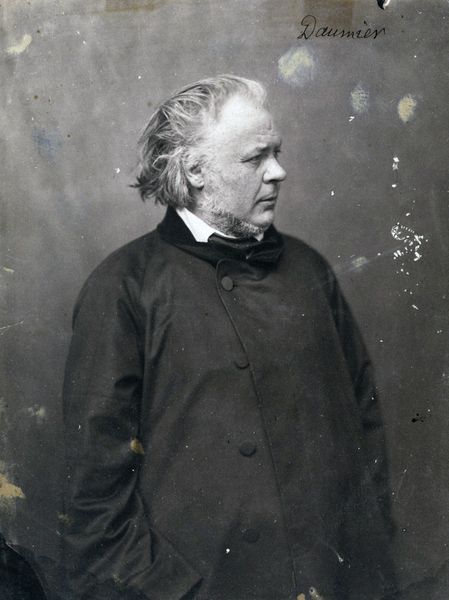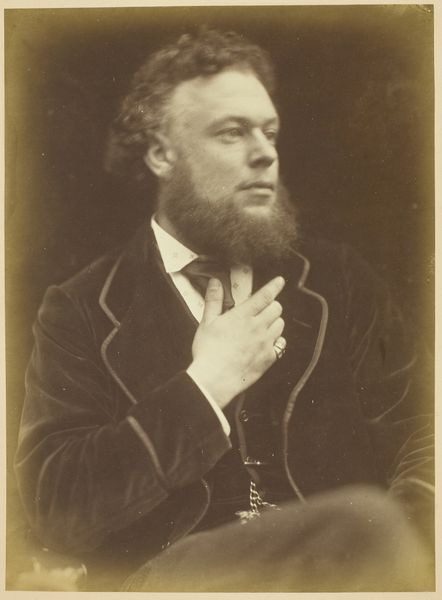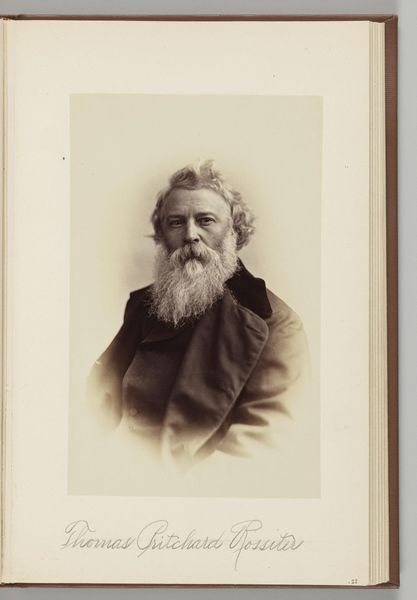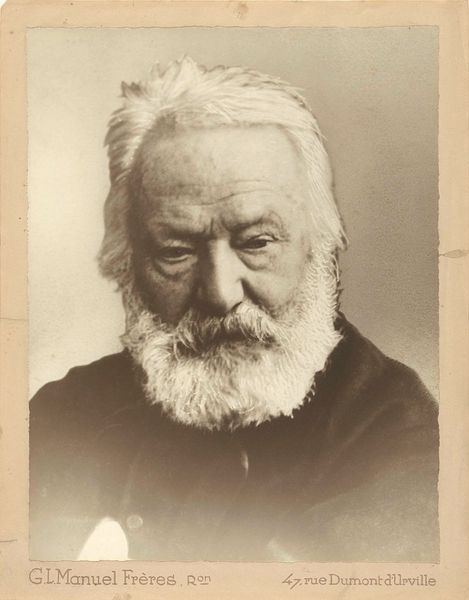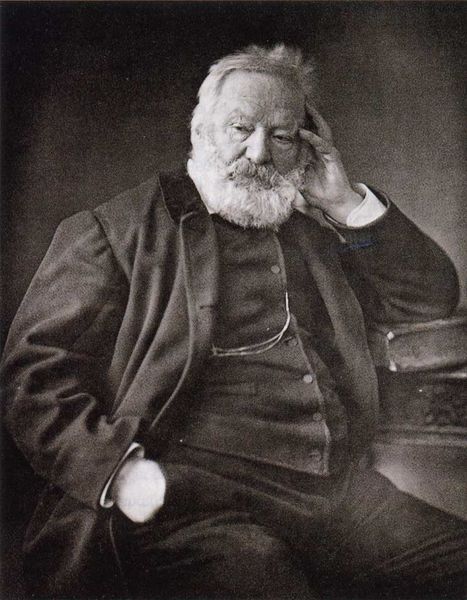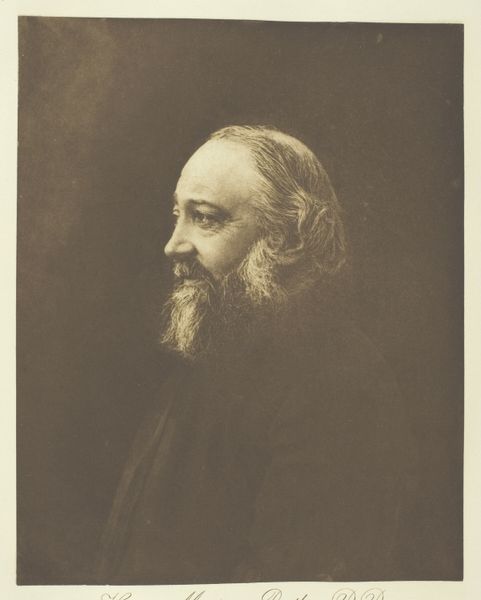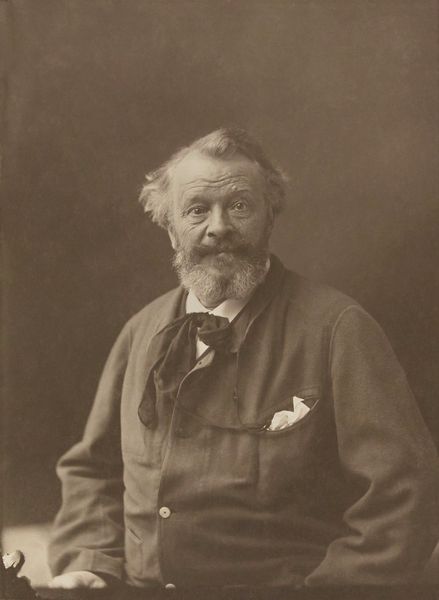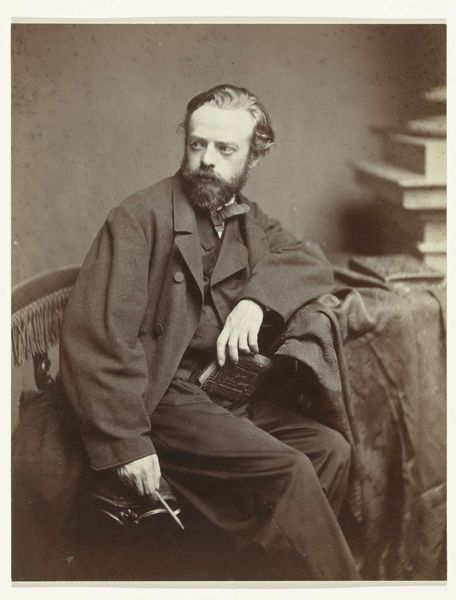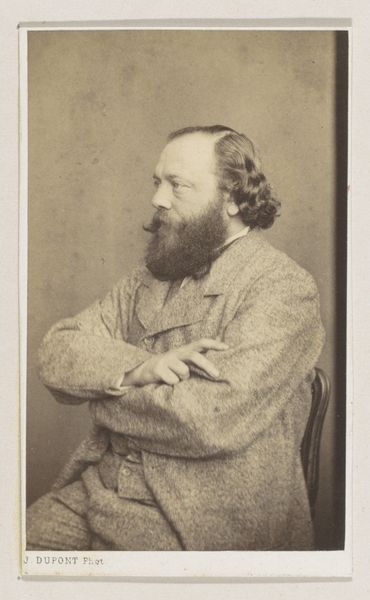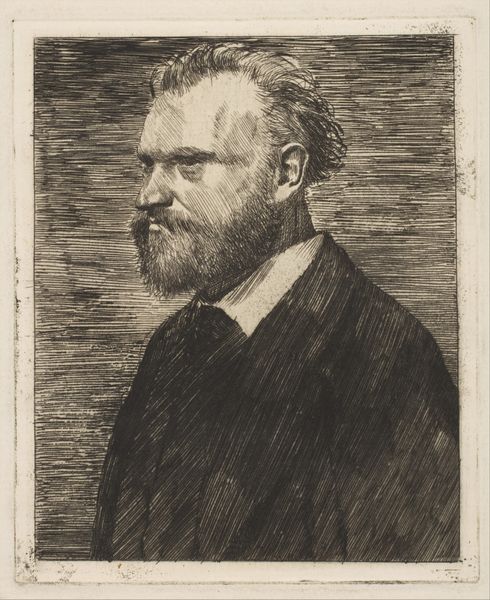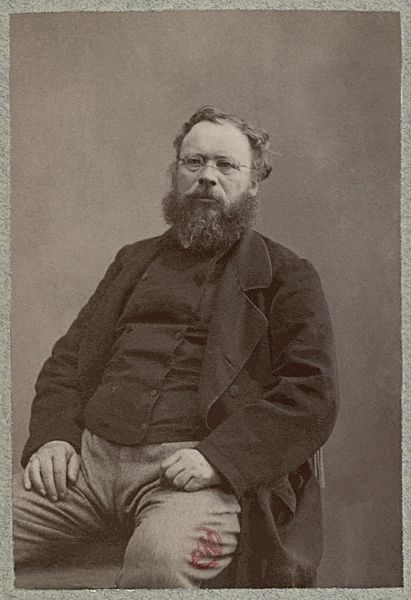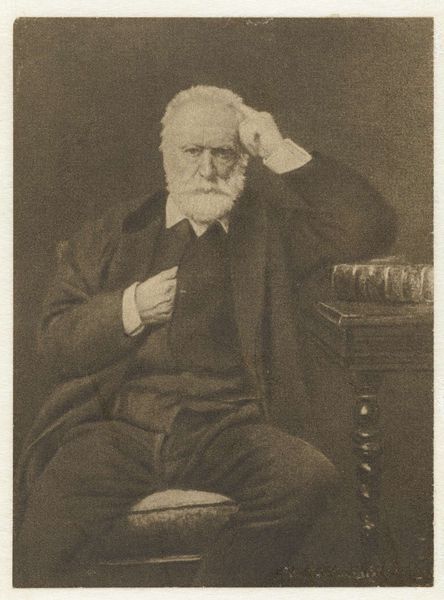
Dimensions: sheet (trimmed to image): 11.7 × 8.8 cm (4 5/8 × 3 7/16 in.) page size: 34.8 × 27 cm (13 11/16 × 10 5/8 in.)
Copyright: National Gallery of Art: CC0 1.0
Alfred Stieglitz made this photographic portrait of Professor Vogel using the photogravure process, which merges photography with traditional printmaking techniques. The grainy texture comes from etching the image onto a copper plate, which is then inked and pressed onto paper. This labor-intensive process allows for rich tonal variation, visible in the soft gradations of light on Vogel's face and beard. The photogravure, unlike a standard photograph, elevates the image into a unique, handcrafted object. Stieglitz was part of the Photo-Secession movement, advocating for photography as a fine art. By using photogravure, he aligned photography with established graphic arts like etching and engraving, each with its own long history of skilled practice. This strategy challenged the then-common perception of photography as a purely mechanical, and therefore artistically inferior, medium. Thinking about the materials and techniques used here, we realize that Stieglitz wasn't just capturing an image, but also making a statement about photography's potential for artistic expression.
Comments
No comments
Be the first to comment and join the conversation on the ultimate creative platform.
